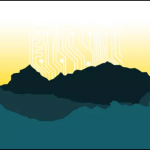ELO has put out the call for self-nominations for editors for the fourth Electronic Literature Collection. See the full call below and consider answering it, so you can help shape the next volume of this key resource of digital literature.
Qualifications
Nominees must have a PhD or terminal degree (such as an MFA) or a substantive body of elit work to be considered. To avoid conflicts of interest, Editorial Collective members cannot have any of their own work published in the volume they are editing.
Duties
- working well in a team of 4 editors,
- assembling and working with a team of international consultants,
- providing progress reports to the ELO Board,
- drafting and circulating a call for submissions,
- developing and applying criteria for selection,
- being available to travel to one (potentially two) editorial retreats at a location convenient to the editorial collective, funded by the ELO Board,
- maintaining timely and collegial communications with authors,
- working with the ELO technical team in publishing the ELC4 in the ELO servers,
- designing, producing, & publishing the ELC4 on the Web (potentially a physical edition) by June 2021,
- being available to fine-tune technical and editorial issues with the ELC4 for a year after publication,
- helping launch and promote the ELC4 once published, and
- participating in other activities needed to produce and promote the ELC4.
Proposed Timeline
- September to December 2019: Develop work plan, assemble international consultant team, draft and launch Call for Submissions, receive and close Call for Submissions.
- January to December 2020: Evaluate and select submissions, have editorial retreat, select and notify authors of decision, begin drafting editorial introductions and designing ELC4, communicate with authors to prepare works for publication and receive source files, prepare image and video documentation, begin production of ELC4.
- January to June 2021: Editorial retreat (if budget allows), finalize production of ELC4, publish to the Web, produce physical edition, launch ELC4.
Budget
The ELO will provide funding for an Editorial Retreat (or two, if fundraising allows) and for production costs, as needed. The ELO Board of Directors will carry out fundraising activities to support the ELC4. ELC4 Editors will not receive any kind of financial remuneration for their work. The ELC4 Editorial Collective will consist of Dr. Rui Torres, who will lead the team, serve as editor and Board liaison, and three editors chosen by the Board.
Nomination Process
This call will be open until August 15, 2019. The Board of Directors will meet in September to discuss the pool of candidates and assemble a 4-member Editorial Collective charged with producing the ELC4. For nominations, please visit: https://eliterature.org/elc4/.Â

